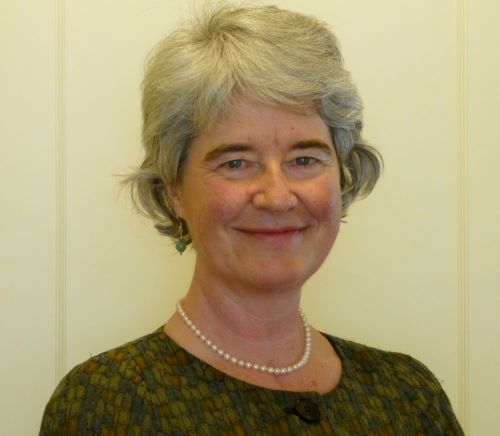How to negotiate trauma during a lifetime of advocacy for domestic violence survivors

Mallika Kaur.
Anyone who’s studied domestic violence law is likely familiar with the woman who pioneered its study in law schools, wrote the textbook Domestic Violence Law and regularly testifies as a domestic violence expert witness. In a practice area most attorneys agree is emotionally draining and personally trying, Nancy K.D. Lemon has shown four decades of staying power.
Intimate partner violence, or domestic violence, is so pervasive that it’s little wonder many attorneys who represent traumatized clients have their own personal trauma reactions—including deep anger, avoidance, fear, flashbacks, bodily reactions and pain. The work may leave advocates emotionally drained or cause them to leave the work altogether. Structural issues around the work also can cause burnout. Since the 1980s, when Lemon began her career, much has changed in how legal systems respond to domestic violence. During the last few years, even advocates have fractured views about the law’s role in equitably addressing domestic violence. Lemon remains hopeful for the future. In this wide-ranging interview, she shares how she has negotiated the emotional and intellectual demands of her work.
She continues to enjoy teaching the next generation of advocates as the Herma Hill Kay Lecturer at the University of California at Berkeley School of Law.
Mallika Kaur: Many people find it difficult to work in this area because in reality, there are very few degrees of separation between these issues in society and these issues in their personal lives. What gives you staying power?
 Nancy K.D. Lemon.
Nancy K.D. Lemon.
Nancy K.D. Lemon: Seeing the courage and creativity of DV [domestic violence] survivors, knowing some former abusers who have benefited a lot from batterer’s intervention programs and are now in healthy new relationships, knowing I’m part of a large international movement of women and men who are making a difference in ending DV and that even though this will take many more years, we are making progress. And being in a loving and equal partnership with my husband for almost 43 years.
Mallika Kaur: Faith and lawyering; it’s not something we often hear about, and yet you have spoken about this in the context of what keeps you in domestic violence law. Could you share more?
Nancy K.D. Lemon: I believe everyone is a child of God, equally deserving of a good life, and that God wants us to help and love each other. Going to church, a United Church of Christ congregation that is progressive and inclusive, each Sunday and hearing this message over and over is uplifting for me.
Mallika Kaur: You work with a lot of emotional responses, evidence of trauma, long-term stress, but you are not a therapist. How do you see your role vis-à-vis mental health experts?
Nancy K.D. Lemon: While it’s true that I am attorney and often see the world through that lens, I have also been part of an international peer counseling community, Re Evaluation Counseling, since the 1970s. Since I practice listening to other people’s emotions as well as taking time to express my own emotions, it feels natural to me to listen to DV survivors who need to cry, shake, get angry, etc. during our interviews, and to reassure them that expressing these feelings is a good thing, part of healing. I don’t think this process belongs to mental health experts—it’s just part of who we all are as human beings.
Mallika Kaur: Have you ever found yourself taking breaks from doing this work because it’s so heavy?
Nancy K.D. Lemon: Yes. I used to carve out one day a week in my datebook and mark it “Day Off”—no emails, no work of any kind. Now I’m working part time, and scheduling a weekly art group, a weekly singing class, a weekly choir practice, weekly performances with the choir, daily walks with my husband and trying to take a nap daily. I also took three months off from work last summer and went on two monthlong camping trips with my husband … . My plan is to start playing my cello again when I take a break from teaching this fall, my first semester off since 1988.
Mallika Kaur: What advice do you have for newer attorneys struggling to find time for their wellness?
Nancy K.D. Lemon: Get enough sleep, daily exercise, find something fun you love to do and do it as much as possible. Learn to say no to new projects and to refer or delegate things to others. I’ve had various success at various points in time with taking good care of my own needs … When I was the mother of a young child, for many years I worked part time, so I had time for him as well as myself. I have recommended to newer attorneys with young children that it’s fine to take a break from lawyering for a while if it is financially feasible, and if that’s really what they want to do—the law jobs will still be there when they are ready to return.
Mallika Kaur: Could you share more about your experience as an expert witness—what is fulfilling and what is challenging? People might not realize the emotional considerations involved.
Nancy K.D. Lemon: When I am working for the defense (before or after conviction) or on family law or civil cases, I usually interview the DV survivor. I have found that these interviews can be very transformative for the survivor as well as for myself. I wrote a law review article about this a few years ago. One DV survivor told me later that my interview with her was the best therapy session she had ever had … She asked if I could come to the prison where she was serving time. I told her it was not therapy but that I was glad it was so helpful for her and that unfortunately I could not go to the prison as I had no role in the case anymore. But we stayed in touch, and I got to see her when she was released. I’ve been pen pals with several DV survivors in prison who I met through being their expert witness, and have helped get them out on parole, which is very fulfilling. When I am on the prosecution side, I don’t know the facts of the case and just educate the jury about DV dynamics as well as answering hypothetical questions on the stand. I usually figure out some of the facts based on the questions I am being asked, but it can feel frustrating not to know very much about the case. In spite of that, I have found it fulfilling to educate jurors, judges, clerks, bailiffs, defendants and everyone else in the courtroom about DV, dispelling common myths and misperceptions and explaining that DV survivors are usually rational people who have found themselves in irrational situations and are doing their best to deal with those situations.
Mallika Kaur: As a white lawyer in a movement being challenged to examine its whiteness, including its alleged default to the criminal systems that do not serve people of color equitably, how do you think about your role?
Nancy K.D. Lemon: As a white lawyer in the DV movement, I am wholeheartedly in favor of us white people examining and acknowledging the racism we grew up with, whether it was the KKK version or the liberal version, listening well to people of the global majority who are talking about racism, educating ourselves about racism—both history and current ways it operates, apologizing for the ways that racism has been embedded in our society and in our legal system. However I do not think that defunding the police, either by completely abolishing their budgets or by diverting all DV cases out of the criminal justice system, will stop DV. … My belief that there is a role for police and the criminal justice system in ending DV has created strain in how I work with some others in the DV field, as some of my colleagues and students disagree with me. We are still civil to each other, of course … I understand why many people are so disillusioned about the criminal justice system, especially its impact on people of the global majority, and hope we can come up with workable solutions. Response teams composed of DV advocates who accompany police to DV incidents are one piece of the solution and should be expanded all over the U.S. So should long term batterer’s intervention programs, which should be more closely monitored by adult probation as some of them do not challenge the participants in their thinking but merely collude with them.
Mallika Kaur: You are often known for taking time, much beyond pleasantries, getting to know your colleagues, mentees, externs and clients at a human level. Why is investing in these relationships important to you?
Nancy K.D. Lemon: It’s part of why I keep doing this work. It’s very fulfilling to mentor the next generations of DV attorneys and see them take on this important work. I genuinely like my students and colleagues, enjoy getting to know them and sharing with them about my own life. For me part of the richness of life is stepping outside of roles like teacher/student, attorney/client, etcetera and connecting as human beings.
Mallika Kaur is a lawyer and writer who focuses on human rights, with a specialization in gender and minority issues. She is the author of the new book Faith, Gender, and Activism in the Punjab Conflict: The Wheat Fields Still Whisper. She teaches social justice classes at the University of California at Berkeley School of Law.



